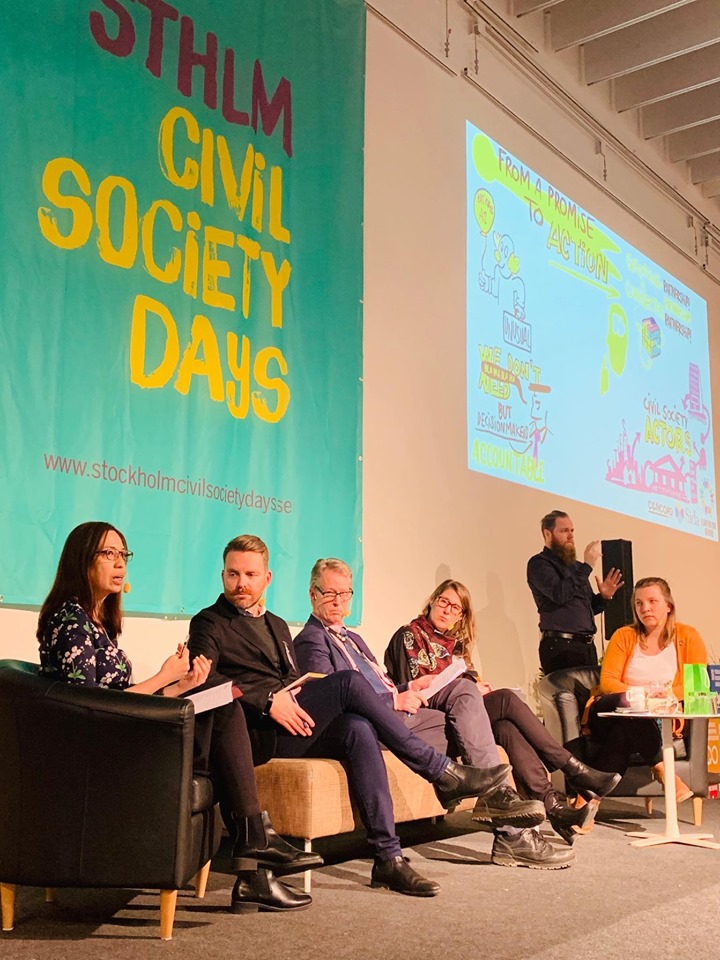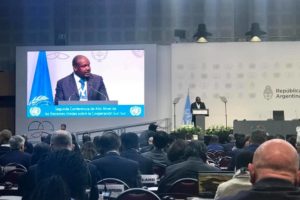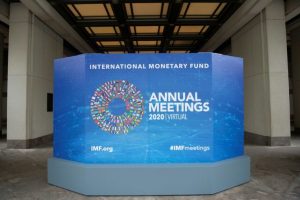On 20 November 2019, at the final panel of the Stockholm Civil Society Days[i] titled “Moving together: Change and Action – From a promise in the 2030 Agenda to actions in society”, IBON International Executive Director Amy Padilla delivered the following reflections on what CSOs can do going forward, what needs to change and how.
Among yesterday’s Mentimeter responses that struck me most was that half of the people in the room were pessimists. I think that we need to be optimists at the core by virtue of the development work that we have chosen. That despite external and internal challenges and increasing risks as individuals and as organisations – sometimes at the risk of losing life and liberty – that we pull through and believe that a better world is possible. And that world is not utopia.
I am affirming this because closer to home, my organisation (whose main office is in the Philippines) has been subject to vilification and continuous threats of various forms of reprisals from government. This is because we – through our mother organisation IBON Foundation working on Philippine issues–produce research materials critical especially of neoliberal economic policies that are literally killing and driving away the poor majority. Two weeks ago, we successfully thwarted the raid of our offices by mobilising volunteers in the CSO community to be on vigil, calling on media, and alerting our partner organisations overseas to raise alarm bells, too. Other NGOs have not been quite as successful. Earlier to this, mass arrests of activists and simultaneous raids of offices were conducted in Manila and Negros Island. This is on top of the already prevailing climate of impunity in the killings, disappearances, harassments of all those perceived to be critical of the government. There is a United Nations Human Rights Council (UNHRC) resolution signed by 44 governments already calling for an investigation into these human rights violations. That threat against us is not going away anytime soon. But we remain committed, more than ever, to pursue our work.
Externally, what needs to change is the prevailing economic system geared towards profits and superprofits for large transnational corporations and elites, unequal trade agreements, all possible through governments, that have breached planetary boundaries and worsened poverty and misery especially in the global South. Applied to the CSO community, this means looking into and addressing the structural drivers of poverty and injustice, contributing to empowerment of people’s organisations respectful of their specific contexts, and building economic democracy that challenge elite power. It is not enough to look at the symptoms and impacts.
Leaving No One Behind (LNOB) isabout taking a clear stand especially for the marginalised, oppressed, poor, vulnerable, excluded peoples in the global South. This include women, youth, rural peoples, indigenous communities, and the like. It cannot be blind to historical, economic, social, cultural and political context and injustices operating in countries.
What can civil society do?
- CSOs as independent development actors need to embrace a human rights-based approach in its totality. That over and above our service delivery, humanitarian, watchdog, partnership functions, having a seat at the table in shaping policies that impact on people’s daily lives is not enough. It also means being free from all forms of encumbrances to genuinely participate, and hold duty-bearers accountable when fundamental rights are violated in the pursuit of “development”.
- CSO “Enabling environment” (voluntary registration for recognition, CSO legislation, access and participation, financial regulation, government support mechanisms, CSO partnerships, CSO networking and donor support) must be constantly asserted, and in most cases fought for. Governments hold the primary duty to build this environment.
- Forge stronger partnerships. International solidarity and cooperation must be premised on the autonomous process and effort of people for democratic development and anchored on country policy. It must do away with traditional donor-recipient country relationships, and be flexible in forging these partnerships. Social change cannot all be capsulized in results matrices with measurable indicators.
CSOs (especially in the North) can provide enabling support by: 1) providing direct support to CSOs for meaningful contribution to democratic development of their countries at various levels; 2) contribute to indirect enabling efforts through solidarity actions; and 3) advocate and strengthen their own people’s and government’s capacity and efforts to provide development cooperation, ODA and diplomatic support.
- CSOs need to adhere to development effectiveness principles to ensure our own accountability (e.g., management of grants and programs) – but fully cognizant that CSO accountability must not be a weapon against CSO legitimacy in the conduct of our work, or fall into the trap of blurring the fundamental difference between our accountability as CSOs and that of governments.
- Especially in the face of worsening political repression in many countries, we need, more than ever, to work in networks, platforms, coalitions, movements while strengthening country processes. This not only brings in greater voices in creating international and national pressure, but provides a mantle of protection compared to just one organisation.
- Solidarity is not altruism. It is being with the people especially in their most difficult moments. I invite you on learning exchanges among countries to better understand each other and ground ourselves better. In the Philippines, we have a solidarity and learning exchange program and I invite you to be part of this. Take bold actions, take risks to embrace people’s issues and struggles. You will see in communities the hope, the optimism to continue the struggle despite overwhelming odds.
Finally, LNOB is not just about eliminating poverty in all its forms. It is also resisting, breaking down barriers of injustice, oppression and tyranny. Central to this is people and their organisations. People, as changemakers and drivers of history, are sovereign. #


